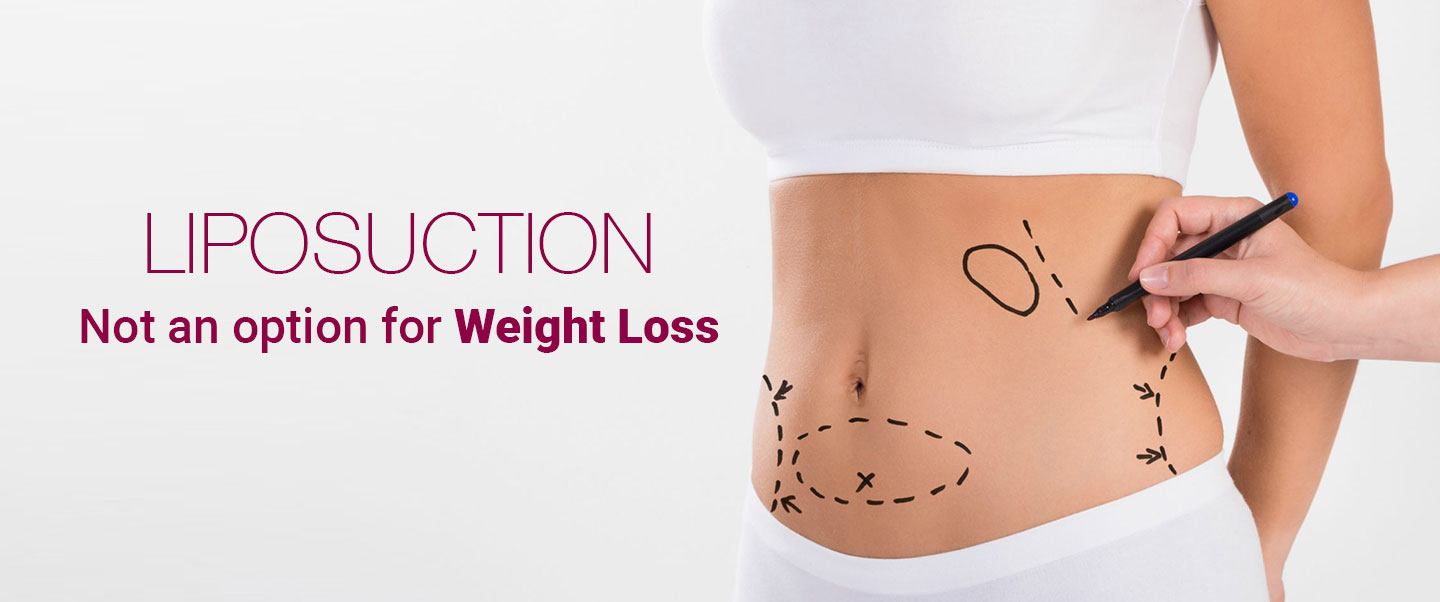Now Reading: What is Liposuction Surgery & What to expect from Fat Removal Surgery?
- 01
What is Liposuction Surgery & What to expect from Fat Removal Surgery?

What is Liposuction Surgery & What to expect from Fat Removal Surgery?
Liposuction is a cosmetic surgery to remove extra fat from the body. The fat from the body parts that seems tough to get rid of through diet or exercise then-candidate considers going for liposuction. The procedure is also known as Lipo, Lipoplasty a part of body contouring.
People who want to improve the shape or contours of the body area such as Thighs, hips, buttocks, abdomen, leg, arms, cheek, neck or back, go for liposuction.
Usually, a dermatological surgeon or cosmetic & plastic surgeon does this type of surgeries to improve your look and shape of your body.
Always remember Liposuction is not an option for weight loss.
Liposuction isn’t a weight loss treatment. It has serious risks and possible complications, so it’s important to talk to your doctor before considering it.
Expectation before liposuction
Liposuction requires going under anesthesia for the painless procedure. It means you may not feel any pain during the procedure but you will feel pain after the procedure as well in during the recovery time.
Hospital stay depends upon which parts of the body require liposuction. The queries you should always discuss:
- The procedure
- Pain during the procedure and also after the procedure
- type of anesthesia
- Medication advise before and after the procedure
Precautions to minimize pain after the procedure:
- Proper medication including pills.
- Wear loose and recommended garments
- Take proper rest and relax your body
- Include more amount of fluids
- Avoid salt which can increase swelling and itching in the incision.
What is Risk?
Every surgery has risks whether it is cosmetic or any other but we can reduce risks by taking proper care. It is important to discuss with your surgeon regarding all the risk factors before going for Liposuction.
Possible risks related to Liposuction are:
- Bleeding and fluid leaking under the skin
- Swelling
- Infections
- too much fluid and a blood clot in the lungs
- Puncture, wounds or injuries to other organs
- Anaesthesia complications
- Burns from equipment, such as ultrasound
- Nerve damage
- Shock
- Reactions to lidocaine and other medicines
- Change in skin sensation; numbness and dead skin cells
- Disruption to blood flow due to tiny pieces of fat break away and block blood flow
- Uneven fat removal
- fat clots
- heart and kidney problems
How you can Recovery from Liposuction?
Recovery varies from the person to person. You can be discharged from the hospital soon after the surgery but it depends upon the type of surgery. You may feel numbness, swelling, soreness for some days. Your surgeon may advise you to wear loose and compression garments for up to 2 months to reduce or control swelling.
Usually, the surgeon may prescribe you some medicines or antibiotics to prevent the infections. You may get back to your normal activity within 2 to 4 weeks.
You should ask questions regarding the recovery like:
- Pain: Pain is usual after the surgery for several days. So you need to take some pain relievers to control the pain. It is important to control pain because it will help you to take rest and increase your recovery with the activities. Your doctor may prescribe you pain reliever according to your health conditions and the type of liposuction which had done. If your pain reliever is not effective or become ineffective, you should consult your doctor.
- Stitches: Stitches may take 10-1 day to heal after the surgery. You should always follow the instructions regarding covering and dressing the stitches. The doctor may suggest not taking shower until it is cleared. The doctor may advise antibiotics to prevent any type of infections. Consult your doctor if you find redness, swelling, bleeding or any type of fluid from the stitches.
- Compression Garments and Bandages: Your doctor will give specific instructions to wear a compression garment or bandages for several weeks to help reduce swelling and bruising. It can also relieve your pain.
- Watch for the complications: Be aware of possible complications during the recovery and contact to your doctor immediately if you find anything like fever, worsening pain, or more swelling than expected. Other warning signs of a complication are shortness of breath, chest pain, or leg pain, redness.
- Back to the normal routine: Don’t be so fast to go back to your normal routine. It may take several days to weeks to return to normal activities. It is advised to walk right after liposuction to help the body to start healing. Consult the doctor before returning to daily activities, driving, work, sex, and sports.
If you want to keep your new shape for a longer period, you should follow a diet full of protein, fruits and vegetables, whole grains, and low-fat dairy and keep exercising regularly.
Read About the


